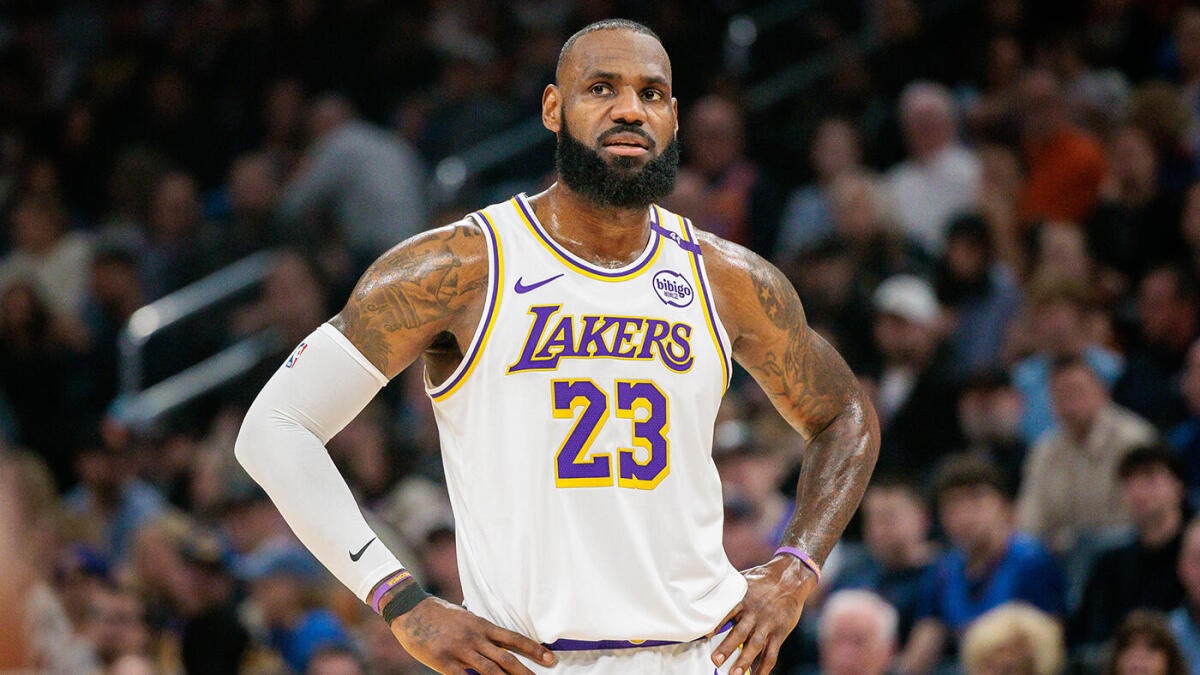The Financial Dilemma of LeBron James and the Lakers
The NBA’s financial landscape is as fluid and dynamic as the game itself, with few players exemplifying this more than LeBron James. As the Los Angeles Lakers maneuver through the offseason, the question of whether LeBron will consider a significant pay cut has sparked intense debate. This analysis explores the nuances of LeBron James’ potential pay cut, the repercussions for the Lakers, and the broader implications for player salaries in the NBA.
LeBron James’ Stance on Pay Cuts
LeBron James has been a linchpin in the Lakers’ roster management, particularly concerning salary cap flexibility. Last offseason, he showcased his strategic prowess by taking a pay cut, reducing his salary by approximately $2.7 million. This move was not merely altruistic but a calculated decision to help the Lakers stay under the second luxury tax apron, thereby maintaining roster flexibility. However, recent insights from The Athletic’s Jovan Buha and Sam Amick suggest that LeBron is unlikely to consider a similar pay cut for the upcoming season.
LeBron’s reluctance to take a pay cut is pivotal for the Lakers’ financial planning. It limits their ability to pursue high-value free agents, forcing the team to explore alternative strategies to bolster their roster. LeBron’s decision reflects his desire to ensure that the Lakers have the financial flexibility to build a competitive team around him, balancing his personal financial security with the team’s long-term success.
The Implications for the Lakers
The Lakers find themselves in a delicate financial situation. To improve their roster, the team must make strategic moves, and LeBron’s decision not to take a pay cut complicates these efforts. The Lakers have several mid-sized salaries and valuable first-round picks that they can trade, but these assets may not be sufficient to attract top-tier free agents without additional salary cap space.
With LeBron forgoing a pay cut, the Lakers will need to delve into other avenues to strengthen their team. This could involve trading existing players, using their draft picks to acquire young talent, or signing mid-level free agents. The challenge for the Lakers is to strike a balance between maintaining a competitive roster and adhering to salary cap constraints. This delicate dance requires astute financial management and a keen eye for talent acquisition.
The Broader Context of NBA Salaries
The NBA’s salary cap and luxury tax rules are designed to foster competitive balance among teams. However, these rules often create intricate financial scenarios for teams and players. LeBron’s situation is a quintessential example of how these rules can influence roster management and player decisions.
In the NBA, players frequently grapple with the dilemma of choosing between maximizing their earnings and contributing to their team’s success. For LeBron, who has already amassed significant financial success, the decision to take a pay cut is not solely about money. It is also about his legacy and his aspiration to win championships with the Lakers. This broader context highlights the multifaceted nature of player salaries in the NBA, where financial considerations are just one piece of the puzzle.
The Role of Player Agency
LeBron’s decision to forgo a pay cut underscores the growing agency of NBA players in shaping their teams’ financial strategies. Players like LeBron wield considerable leverage, influencing roster decisions, salary cap management, and free agency moves. This shift represents a departure from the traditional top-down approach of team management, where general managers and front offices held more control.
The Lakers’ situation exemplifies the importance of player agency in modern NBA roster management. Teams must now consider not only the financial implications of player salaries but also the players’ willingness to make financial sacrifices for the greater good of the team. This dynamic adds a layer of complexity to roster management, requiring teams to be more attuned to their players’ motivations and desires.
The Future of LeBron and the Lakers
Navigating Uncharted Waters
LeBron James’ decision not to consider a significant pay cut presents challenges for the Lakers but also opens up new opportunities. The team will need to be innovative in their roster management, leveraging their assets and financial flexibility to build a competitive team. LeBron’s stance on pay cuts reflects his commitment to both his financial security and his legacy as a player.
As the Lakers navigate the offseason, the focus will be on how they can improve their roster without relying on LeBron’s pay cut. The team’s success will hinge on their ability to make strategic moves and adapt to the evolving financial landscape of the NBA. For LeBron, the decision to forgo a pay cut is a testament to his influence and the complex dynamics of player salaries in the modern NBA. The future of the Lakers rests on their ability to balance financial constraints with the pursuit of championships, a challenge that LeBron and the team will face together. This journey will be marked by strategic decisions, financial acumen, and a shared vision of success, both on and off the court.












